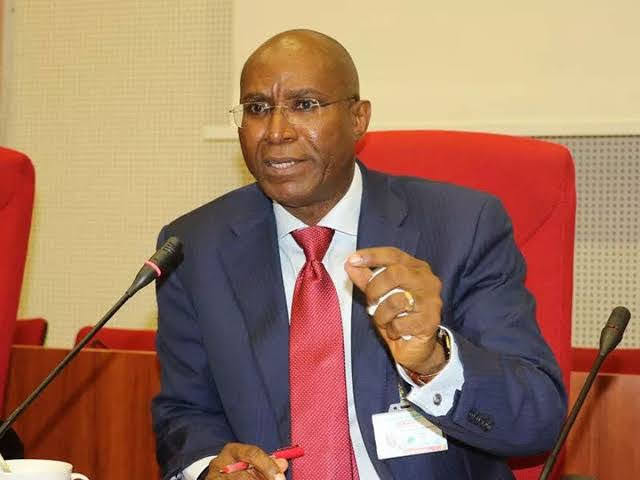Oil and Gas
Stakeholders in Oil Sector urges swift implementation of BSOEC report in interest of humanity

Stakeholders from across the oil and gas sector are urging swift implementation of the recommendations outlined in the Bayelsa State Oil and Environment Commission (BSOEC) report.
This call was made at a press conference in Abuja on Wednesday evening by representatives from civil society, local communities, and industry experts, all pressing for action to address the environmental degradation in Bayelsa State and the wider Niger Delta.

Earlier that day, the BSOEC launched its much-anticipated report, unveiling the dire consequences of oil spills and gas flaring on Bayelsa communities.
The report, titled “An Environmental Genocide: Counting the Human and Environmental Costs of Oil in Bayelsa, Nigeria,” provides a detailed account of how oil extraction has devastated ecosystems and local livelihoods.
Key figures present at the launch included Bayelsa Governor Douye Diri, former Governor of the state, Senator Henry Seriake Dickson, King Bubaraye Dakolo, Chairman of the Bayelsa State Council of Traditional Rulers, among others.
One of the report’s central recommendations is that International Oil Companies (IOCs) allocate $12 billion over the next 12 years to remediate environmental damages in the oil-rich region.
Speaking on behalf of Social Action International, Dr. Isaac Osuoka called on both the Nigerian government and the international community to take immediate action.
“We demand an immediate halt to the sale of onshore oil assets by IOCs until they fulfill their obligations for environmental remediation and community compensation,” Osuoka emphasized.
The report outlines $12 billion as necessary to begin repairing the extensive damage, framing the demand as one of justice, environmental responsibility, and human dignity.
In his words, “After looking at the vast extent of the damage, the commission calculates in the report that we need $12 billion over the next 12 years to repair the damage done. This is a matter of justice, of environmental responsibility, and of human dignity.
“The Niger Delta’s experience is a stark reminder of the interconnectedness of the climate and ecological crises. The world’s attention is on us, and we have a responsibility to act – not just for Nigeria, but as part of a broader call for global environmental and social justice.
“The recommendations of the BSOEC report offer a roadmap, and it is our collective duty to follow it. The time for action is now, and the people of Niger Delta deserve nothing less”.
BSOEC Chair, Hon. Lord Sentamu condemned the conditions that communities in the Niger Delta endure, describing oil exploitation in the region as “environmental genocide.”
He highlighted the plight of residents living amid leaking pipelines, contaminated land, and polluted waterways.
According to Sentamu, the system’s current structure incentivizes oil companies to attribute spills to sabotage rather than faulty infrastructure, underscoring the need for independent investigations that communities can trust.
Kathryn Nwajiaku-Dahou, Chair of the BSOEC’s Expert Working Group, insisted that $12 billion is the minimum expected from oil companies, given the severe impact on health and the environment. She noted that beyond cleanup, the companies are obligated to restore ecosystems and replant mangroves that act as crucial carbon sinks.
Nwajiaku-Dahou further highlighted the importance of immediate health interventions to address pollution-related illnesses and urged for long-term investments in healthcare infrastructure to monitor and treat communities exposed to toxins over the years.
A significant challenge, she added, lies in the continued overlap between commercial and regulatory functions in Nigeria’s oil sector. “If we do not separate these functions, conflicts of interest will persist, undermining any hope for genuine regulation,” she stated.
Nnimmo Bassey, Director of the Health of Mother Earth Foundation (HOMEF), argued that a just energy transition requires halting onshore asset sales until full remediation and community compensation are achieved.
Bassey emphasized that regulatory frameworks must be strengthened, not only for corporate accountability but to protect the region’s people and lands.

























